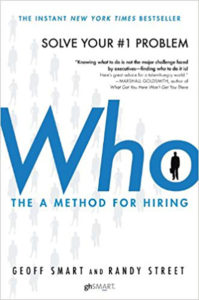


—
Listen to the podcast here:
[smart_track_player url=”https://www.podetize.com/statsapi/www.podetize.com/wp-content/uploads/fileuploads/11-5b145ef137b51b3d1af0633e9305c43d/07/2019/96e3e40af9eddda38e40113fb0c1c395.mp3″ title=”Step Up Your SEO Game Using High-Quality SEO with Brennen Bliss” artist=”Nathan Hirsch” image=”https://freeup.net/wp-content/uploads/2019/04/OAS.png” ]
Download the audio file here.
Step Up Your SEO Game Using High-Quality SEO with Brennen Bliss
We have a very special guest, Brennen Bliss. How are you doing?
I’m doing well. How about yourself?
I’m doing great. Brennen is the Founder and CEO of PixelCutLabs. It’s an SEO agency that has won national awards and has been recognized for world-class SEO services. The recognition includes Brennen’s being named as one of the Top Ten Young Search Professionals in the USA by US Search Awards and PixelCutLabs being included in a list of top 1% of digital marketing agencies in the US by UpCity in 2019. I also know you did some pretty cool things as a fourteen and sixteen-year–old. Why don’t we start off right there? You became an entrepreneur at a very young age. Walk us through what you were doing as what I’ll call a kid.
First off, thanks for having me on. At fourteen, I started making websites to fill time. I made one for my mom’s company and then I started going to my friend’s parents, haggling them and trying to get them to pay me to make a website for them. I ended up doing that for a while and then I tapped all of their money out. I was like, “What do I do now?” This was sixteen-year–old me. I learned SEO, which is for anybody that doesn’t know, it’s something where you’re trying to tailor your website to be at the top of Google search results. I optimized my site for the term Dallas web design agency. I ended up getting a call from the College Football Playoffs and I made their foundation’s website at sixteen years old. I was able to start hiring, building a team at that point and since we segmented down into the SEO thing, that’s how I started my business. Every single business owner that isn’t doing it is missing out on a huge opportunity.
I want to talk about SEO, but I also want to first talk about building a team. I hired my first person before I could legally drink. I was twenty. You hired people at a pretty young age. What was that like hiring people when you think of a boss in their 30s, 40s or 50s? What was that like?
One of the things that I’ve learned about myself is I get a lot of joy and excitement about being “a leader” and helping people cultivate themselves, learn the things that they’re great at and do them well. Once I got the rush of doing that, I started hiring on Upwork, which I know is not in any way, shape or form superior to FreeeUp, which is where I go now when we need people. On Upwork, I had spent over $50,000 when I was sixteen or seventeen and then they banned my account because I was under eighteen. I started with freelancers overseas, the $6 to $10 range and then I needed more specialized work. I brought it into the US on Upwork and then I went over to starting to hire W–2, which was the scariest thing in the world because payroll is freaking scary. It comes down to people who are going to work if you give them something to get excited about. It doesn’t matter how old you are and it doesn’t matter how young you are. This whole, “Do people who are older than you think it’s weird to be working for you?” No, it’s never even come up. Either that or I’m too blind to see it.
Good content not only means that the content is valuable and high quality. It also means that people are going to care enough to read it.
Any tips for building teams? You’ve managed a lot of people. You’re saying motivation and getting people excited is important. How does the average entrepreneur do that?
At the top of all this, I thought you needed an office to make it happen. I’ve heard you talk about this a lot. You need to have a set of core values but it’s still a fuzzy subject for us. We don’t have a written down set of core values. We have things that we all believe. By having those and by making sure that the people that have those are all together and experienced the same things and communicate on a daily basis, the team is its own living organism. You start with one and it took me over a year to hire the second person after the first was hired. You should never hire more than you can afford to hire. It’s setting you up for failure. Keep the team small and keep it clean. We’re only five people at this point, plus 40 contractors. It’s a fun thing and a team is necessary for success on a large scale. It’s been important for me to have a group of people that I can turn to that know a lot about what they’re doing.
Any big hiring mistake or any horror short story that you can share with the audience?
I’ve been so weirdly lucky in my hiring. The first person I hired, I literally was introduced to and I said, “Do you want this job?” She said, “Yes,” and she left her job. She still works and she’s the leader of our accountants’ deliverable team. I read a book called Who, which is about hiring. Had I not read that, I would’ve had so many mistakes to share with you but since reading that, we’ve been very tailored in our hiring. That is, fortunately, the one area that we have not made too many mistakes on. Back when I was doing all contractors, it was hard because I was trying to manage people. I’m very ADHD and I’m all over the place. When someone sends me something, it’s like, “I should get back to that,” and then a week later, they’re like, “What’s going on here?” It helps to have people to keep you accountable. That’s the part that I like about having an actual in–house team. You build a solid connection with them and it’s much easier to do that when you’re all working with the same values.
Let’s talk about SEO. I know Google hates SEO agencies. They want the PPC and SEO is always changing. How has SEO changed from when you started to now?
Let’s talk about what you first said how they hate SEO agencies. Google’s mission statement is to organize the world’s information and make it universally accessible and useful. It used to be, “Do no evil,” but they took that out because nobody liked that for some reason. I thought it was awesome. Google makes its revenue from ads and all their other products. They get people to purchase ads and people clicking on ads. When people click on ads, Google makes money and they get people to click on ads by giving them results that they care about enough to come back to Google and not use Yahoo. It isn’t a foreign concept because most people don’t know what Yahoo is anymore. If Google can get people to keep coming back, they make more money and they do that by showing the best results, not only in the PPC section but also in the organic section. The organic section still takes up a majority of most pages on those searches. By publishing high-quality useful content to go to on your website that Google can use to get users to love Google, you’re also increasing their AdWords game or their Google ads game. Organic is not something that Google does not care about. They definitely care about AdWords more but organic is still very important.

Would you say that they’re constantly changing the algorithms because they don’t want people to be focused on SEO? They want people to run the ads, too.
That’s definitely one of the reasons. They say that there’s no communication between those two teams. That’s such a lie. I can’t believe that Google is trying to generate revenue. They’re trying to create one page and on Google experience for this to click away. They only want people clicking on the ads. At least for the time being, I don’t see it as being a position where Google’s going to make everything either paid or they’re going to show structured data like they’re doing with this knowledge graphs and position zero at the top of the page. What Google is doing, to go back to the question is, they’re changing the algorithm to show better content on an ongoing basis, but they are leaning more towards showing ads.
What makes good content? You’re constantly putting out content. I’m putting out blogs, YouTube videos and all this stuff. How do I figure out what’s good content as opposed to wasting my time that’s not going to help me out with SEO?
Show it to somebody else if they’re helped by it. Good content not only means that the content is valuable and high quality, but it also means that people are going to care enough to read it. They get to the page and it’s not this massive block of text that’s 3,000 words, which I see a lot. It’s not a word count they are looking for. There are some upper and lower bounds that you want to watch out for a 600 to 3,000 words. It’s the readability and useful nature of the content because the best content ultimately is going to win. As long as Google can find the content and there’s nothing that’s showing Google that the content is bad. Aside from long-form content, creating engaging articles with interactive tools, things like photos and any infographic video, and creating a dynamic content field where it’s not just a big block of text is what I consider good content.
What are the common mistakes that people make when they’re doing SEO or when they’re putting content out?
If we pull back the conversation to answer that question in a way that says, “What do we need to do to get their content featured in Google?” It’s three things. It’s number one, Google needs to be able to reach your site. If your onsite SEO sucks, nobody’s going to see your content. Number two, the content has to be of quality, which we highlighted on a little bit and number three, Google has to be able to see relevance and authority in your content, which is where we go into the backlink building side of things. When we talk about how to get your content ranked and how to get your content featured in Google, it’s going to be number one, removing those barriers. Number two, writing the good content and number three, getting other websites to feature that content by doing outreach.
When you’re building something with SEO in mind, you also have to keep the user in mind.
Let’s say we take you, Neil Patel and another SEO expert and put you in the same room. Are you guys all saying the same strategies or are there lots of different SEO strategies? Is the algorithm hidden and no one knows what works and what doesn’t work? Would you say it’s become pretty much the same across the board?
Generally speaking, I hope that people started to understand that there aren’t games to be played here. Anybody that’s trying to play games is going to get hurt. You take Neil Patel, for example, he makes good content, the content’s readable and it’s helpful. There’s a lot of sales stuff in there but he has great content writers, his team is great and that’s why they do so well in organic. I would agree with him on a lot of things. There are small strategies that might’ve worked years ago that don’t work now that are still written about. If we were in the same room together, I’m sure fun times will be shared and we would have things to disagree about. Generally speaking, we’re all on the same terms. We’re all looking to write the best content.
Tell us more about SEO. What does the average person not know?
They’ve got to know when you’re building something with SEO in mind, you also have to keep the user in mind. That’s something that people forget all the time. They laser–focus on SEO and they forget about the user. If something works well for the user, chances are it’s also going to work well for the search engine spider because search engine spiders are built to crawl a site as if they were a user. They click on links as if they were a user. The only thing they do that users don’t do is go to the site map. When we look at a sound navigational structure, you want your most important pages to be immediately accessible to users. Put them at the top and make sure the URLs are in a consistent format.
If you have 30 services, you don’t want to have your website URL and then the name of the service, you want to have your website URL and then a subfolder, subdirectory that says services and then your service. That makes it easier for not only Google to understand that every single page that has that service URL directory is a service page. It also helps users to navigate between those pages because everything in that dropdown is going to be a service. Keeping in mind the user, building the site for the user first and foremost and making sure it’s accessible to Google.
I have a question from the client side because I hear this a lot. Someone wants to commit to getting an SEO freelance on the platform, an SEO agency. How do you measure ROI? For the average entrepreneur that may have a tight budget or somewhat tight budget, they’re like, “You want me to pay X amount per month and then I’m going to do this for months. It’s a never–ending thing but I’m not going to be able to see an ROI like I would, say PPC or listing our product on Amazon or whatever it is.” You don’t see that necessary ROI that you would or maybe you can. What would you say to a client like that and what’s the best way to measure it?

We look at PPC for example and you can say if you’re an eCommerce store, we’re looking at something where we can attribute AdWords, Google ad spend or Facebook ad spend to specific dollar revenues. You can do that with Google Analytics using organic search just as easily. You make sure that your products are reporting back sales revenue to Google Analytics and then you attribute it to organic search and then you can cross match the data with Google search console. We can show you exactly which keywords are generating what revenue and we can show you exactly how much you’re spending in correlation to how much you’re making. You can create the same types of reports. We have the three–step process to do that, especially when we think of customers that don’t have a specific dollar value to sales, they’re looking at the leads.
Look at your current customer base. They’re generating maybe an average of $3,500 a month in revenue for you and this is a high-value service for example. If we need to talk to ten people to get one person to sign up for $3,500 a month service, we’re looking at a $350 lead acquisition. If we want to even that out from these ten people, we’re going to try to say, “Every single time someone fills out our contact form, it’s worth $350.” If you’re paying $3,500 for the SEO campaign, we need ten people to fill that out for you to get a 100% or a return on your initial investment. 100% you get that money back and then to go above and beyond that by doubling it, you’d need 20 or 30 people. We generate those reports by saying, “What are we attributing value to these leads? What are they worth to us? How are we going to track and report that, which is typically reporting any events back to Google Analytics? How often are we going to look at this data, which is the standard reporting frequency?”
Let’s talk about keywords for a little bit because I feel like some people are incredibly focused on that. Maybe too much. I’ve seen blog articles that they’re there for the keywords with no actual value. What’s your take on that?
That’s not quality content. There are a lot of things here. I would say make sure your keywords make sense. Make sure they map to specific pages on your site. Make sure that you’re targeting keywords that show buyer intent. You don’t want to target underwater basket weaving if you’re selling baskets because people that are looking for underwater basket weaving are not probably going to be buying your baskets. They’re looking for other further out of this world concepts. Match your keywords to your pages on your site. That’s called keyword mapping. When you’re looking for keywords, it’s not an all or nothing thing. Google does something called Latent Semantic Indexing, LSI. It uses that technology to figure out what keywords are similar and what keywords are not similar to others.
You’re not going to make huge mistakes with keywords unless you’re starting with an extremely very high search volume, high competition keyword like dogs. I would go add a couple of terms to that. If you’re selling dog leashes, you can say red dog leashes is a better keyword than dogs because you’re not going to get anywhere with a low authority site targeting something like dogs. If you don’t have software to research it, if you aren’t paying for that, look for things that match the intent of your products. If you’re selling something or selling information, make sure that you would be asking them that question to get to what you’re selling. That’s what it comes down to.
What trends do you see? Where do you see SEO going?
Search is becoming more of an “on Google.com” experience.
This is such a hard question to answer because it keeps saying Google eat up that search engine presence. There’s one cool thing that’s happening in the world of SEO. It’s been happening for a while. If you’re not familiar with schema markup, this is your time to be alive. Schema markup is something that’s called structured data. It’s something that you insert into your site in JavaScript in JSON code and it tells Google word for word exactly what’s on your site. Let’s take an eCommerce store for example and you have a thousand products. Google crawls all thousand pages, looks for the price, looks for the information and sometimes it’s able to pull it out and show it on Google’s results page. It will show the dollar value, the rating, and all those structured data markup derivatives but that’s because Google crawler is good at it.
Schema markup allows you to spoon feed that data to Google and it makes Google more confident in search. It rewards people by showing those stars, by showing the price tag and by showing structured information in Google search. Google is by and far continuously moving to show more information on the search results page, the SERP, Search Engine Results Page, that you would otherwise in previous times, tough to access the other websites. Search is becoming more of an on Google.com experience than it’s becoming on the landing websites experience and it’s going to keep going that way for as long as I can see.
This has been a ton of information. I personally learned a lot and the audience as well. Where can people find out more about you and what are you most excited about the rest of the year?
What I am most excited about the rest of the year is implementing all this schema stuff for our clients. We’re working with a great partner to do it and we’ve got 39 clients. We are ready to grind hard the schema markup. As far as where users can benefit from this, if you would like to get a full understanding of where your website is, we created a link at PixelCutLabs.com/OAndS. You can get a comprehensive SEO analysis that tells you exactly what you can do to improve your website.
Thank you so much for coming on.
Thank you.
Important Links:
About Brennen Bliss

